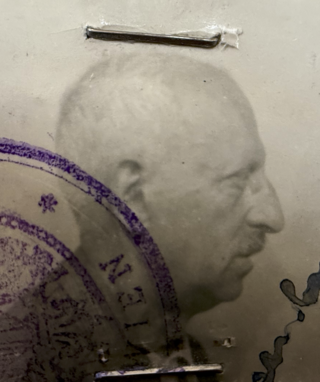Adalbert (Béla) Felsenburg

Personalia
Born:
Died:
Profession:
KZ Number:
Curriculum Vitae
Adalbert Felsenburg was born into a Jewish family in Lizenz (Losonc in Hungarian) in what was then Hungary [today: Lučenec in Slovakia]. It is not known exactly when the family moved to Vienna, but he attended grammar school in Vienna. However, as he had problems at school in Vienna, he transferred to the grammar school in Hungarian Hradisch [today: Uherské Hradiště in the Czech Republic] to complete his schooling there. He met Flora Jelinek in the choir of the Jewish temple.
After his return to Vienna, he stayed in contact with Flora Jelinek and finally married her in 1903. Their son Walter Felsenburg was born in 1904. Adalbert Felsenburg initially worked as a court reporter for the Neue Freie Presse, but later specialized in art and culture reporting. From the 1920s, he had an extramarital relationship with the dancer and actress Maria Minzenti. Money problems eventually lead to a falling out with the Neue Freie Presse, whereupon Adalbert Felsenburg switches to the Neuigkeits-Welt-Blatt. As a journalist in Vienna, he is friends with Theodor Herzl and Federal Chancellor Engelbert Dollfuss.
On the night of the occupation of Austria by Hitler's Germany, Adalbert Felsenburg is arrested by the Gestapo on 11 March 1938. On March 11, 1938, Adalbert Felsenburg was arrested by the Gestapo and on April 2, 1938, he was deported to the Dachau concentration camp on the so-called 'Prominent Transport'. From there, he was transferred to the Buchenwald concentration camp on September 22, 1938. In the concentration camp, he lost his right arm as a result of the abuse. He was finally released on May 25, 1939 and fled to Paris, where his lover Maria Minzenti was staying. However, she did not want any further contact with him.
After the German Wehrmacht invaded France, Adalbert Felsenburg fled to Vichy France, where he was interned in the St. Cyprien camp. In the south of France, he witnessed the liberation of Austria and the re-establishment of the Republic. After his return to liberated Vienna, however, he was no longer able to gain a foothold as a journalist. He died at the age of 74, probably by suicide.
He is the great-uncle of Nobel Prize winner Elfriede Jelinek.
Places
Residence:
Persecution:
Citations
Wiener Stadt- und Landesarchiv (WStLA)
Pixner, Silke (2010): Pressepolitik in der NS-Zeit - Eine gruppenbiographische Analyse der RedakteurInnen der 1943 eingestellten Tageszeitung "Neuigkeits-Welt-Blatt"
Dokumentationsarchiv des österreichischen Widerstands (DÖW)
